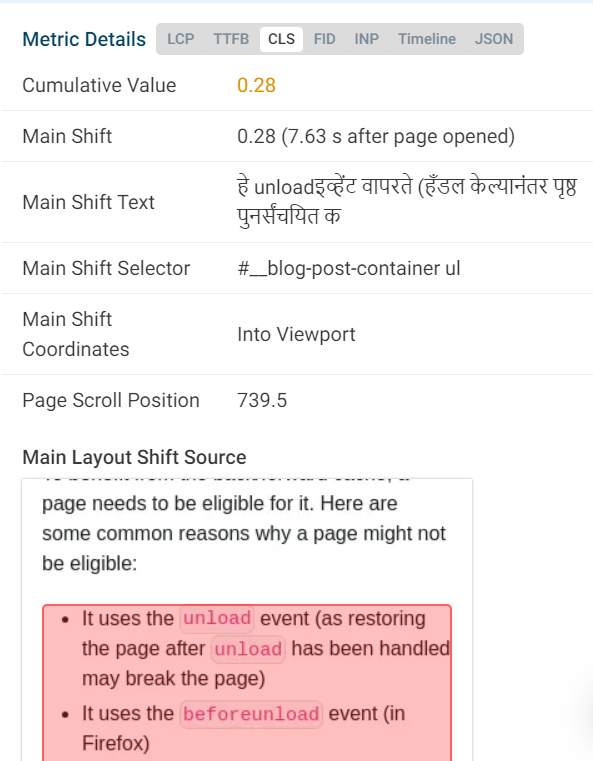RUM Page Views Tab
The RUM Page views tab allows you to take a closer look at individual visits to your website.
List of Page Views
The overview shows a list of page views with this information:
- Page title and URL
- Browser
- Device
- Location
- Core Web Vitals scores
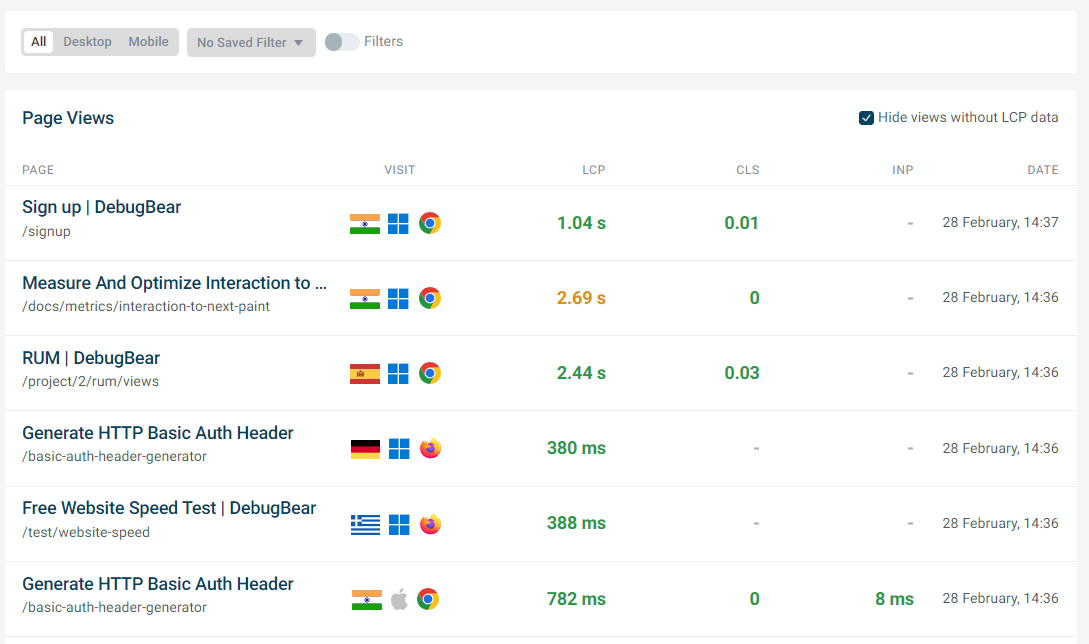
Individual Page Views
Clicking into an experience will present more data on the visit. The page view section shows information on the browser version and also how the user navigated to the page.
It is useful to know details about the user experience because it can have an effect on results. A poor connection will result in worse scores for a particular user.
If you notice bad scores from a visitor with a fast connection, then optimization may be needed and you could see similar results from other visitors in the experiences overview.
Navigation type can also affect a metric score, if a page is reloaded then LCP may be scored better due to caching. Back and forward navigations (BFCache) can also affect scores.
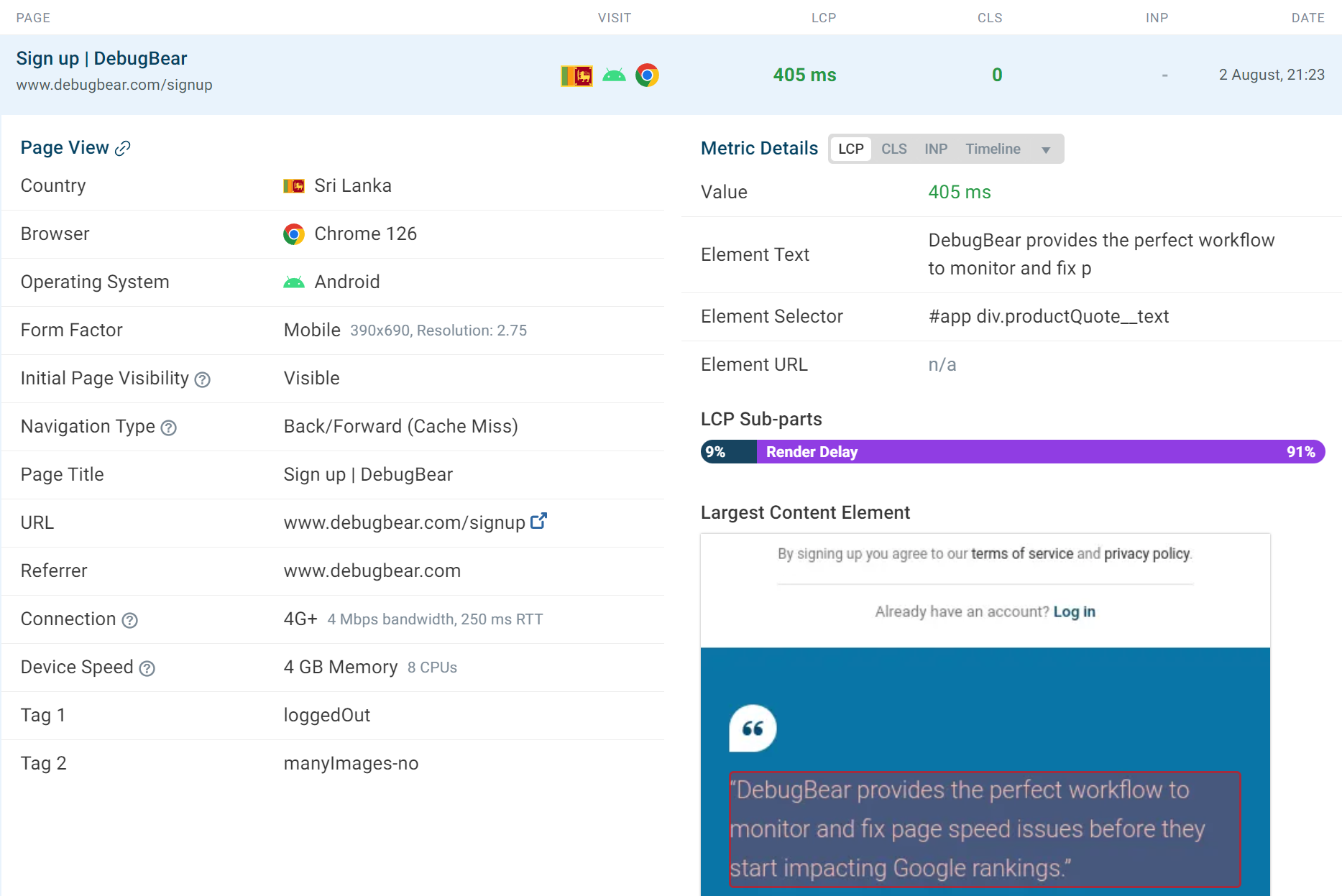
Some experiences may include a Long Animation Frames breakdown included in the metric details.
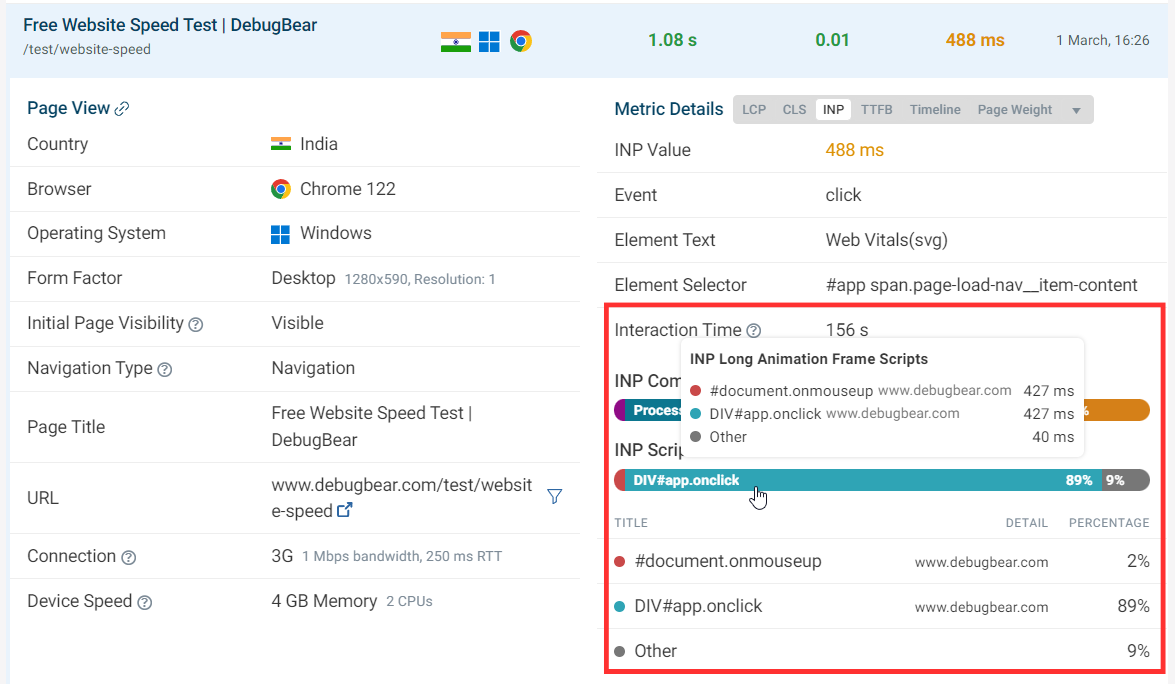
A partial request waterfall is available below with 10 most important requests.
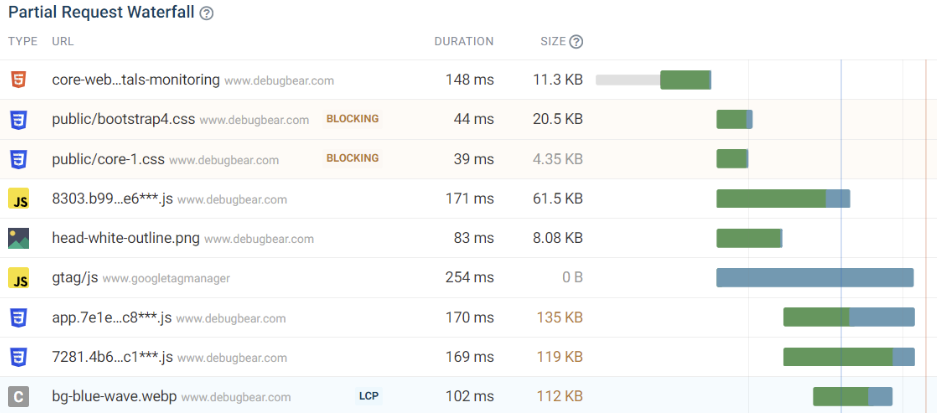
Missing Core Web Vitals in non-Chromium Browsers
Some data may be missing from experiences as Core Web Vitals data is only available in Chromium browsers. In Safari, Core Web Vital metrics are missing but page view data is still available.
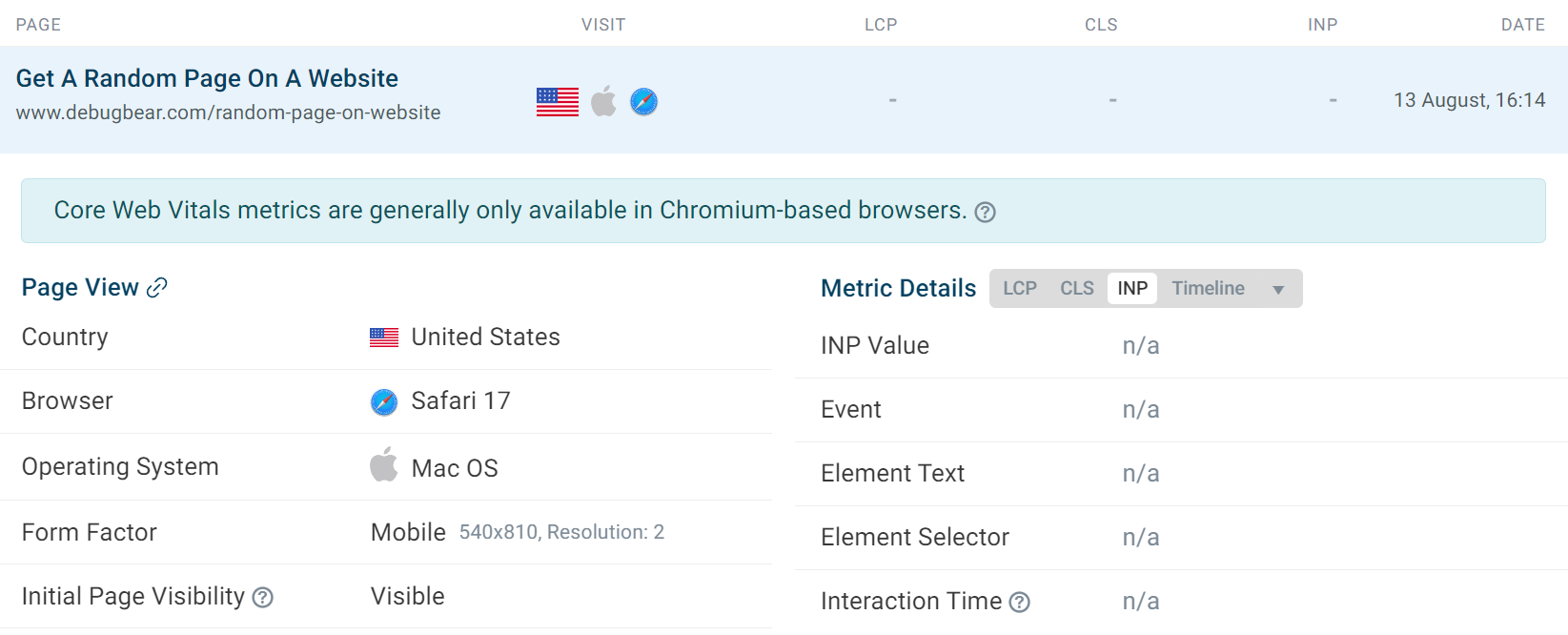
Some metric data is available in the timeline tab such as First Contentful Paint.
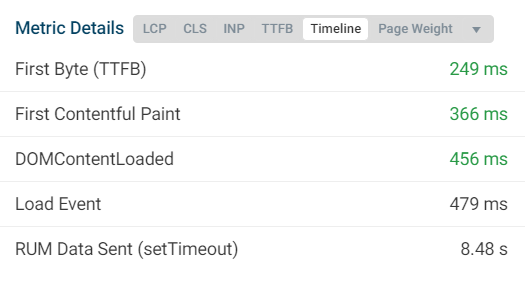
Debugging Experiences
Both Page View and Metric Details can provide insight into what is causing a metric score. In this example we have an LCP score that has not been recorded, despite the visit being from Chrome.
Looking at the Initial Page Visibility we can see that it was hidden. This lets us know that the user opened the page in a different tab. If a page is not viewed then LCP cannot be recorded or the page was then viewed after monitoring was complete.
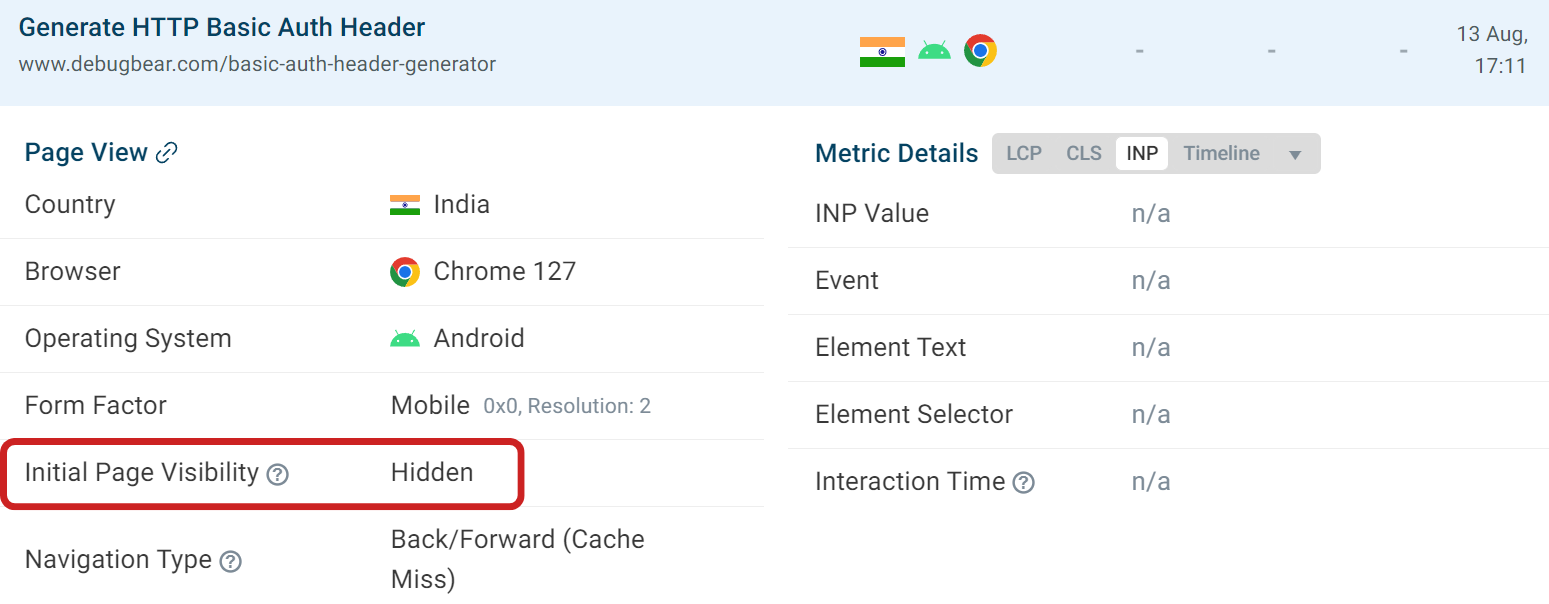
In this example, we have selected a page which has a good CLS score for most visitors. This individual experience has a poor CLS score at 0.28.
Navigating to the CLS tab we can learn more about how the page was presented in this instance. Due to the location of the user, the page was translated which caused the layout shift.
The Main Shift text value shows what the user sees and this translated text is not in the HTML.
Screenshots of elements are taken independently as a visual example and not during the users visit, that's why the translated text is not shown there.
